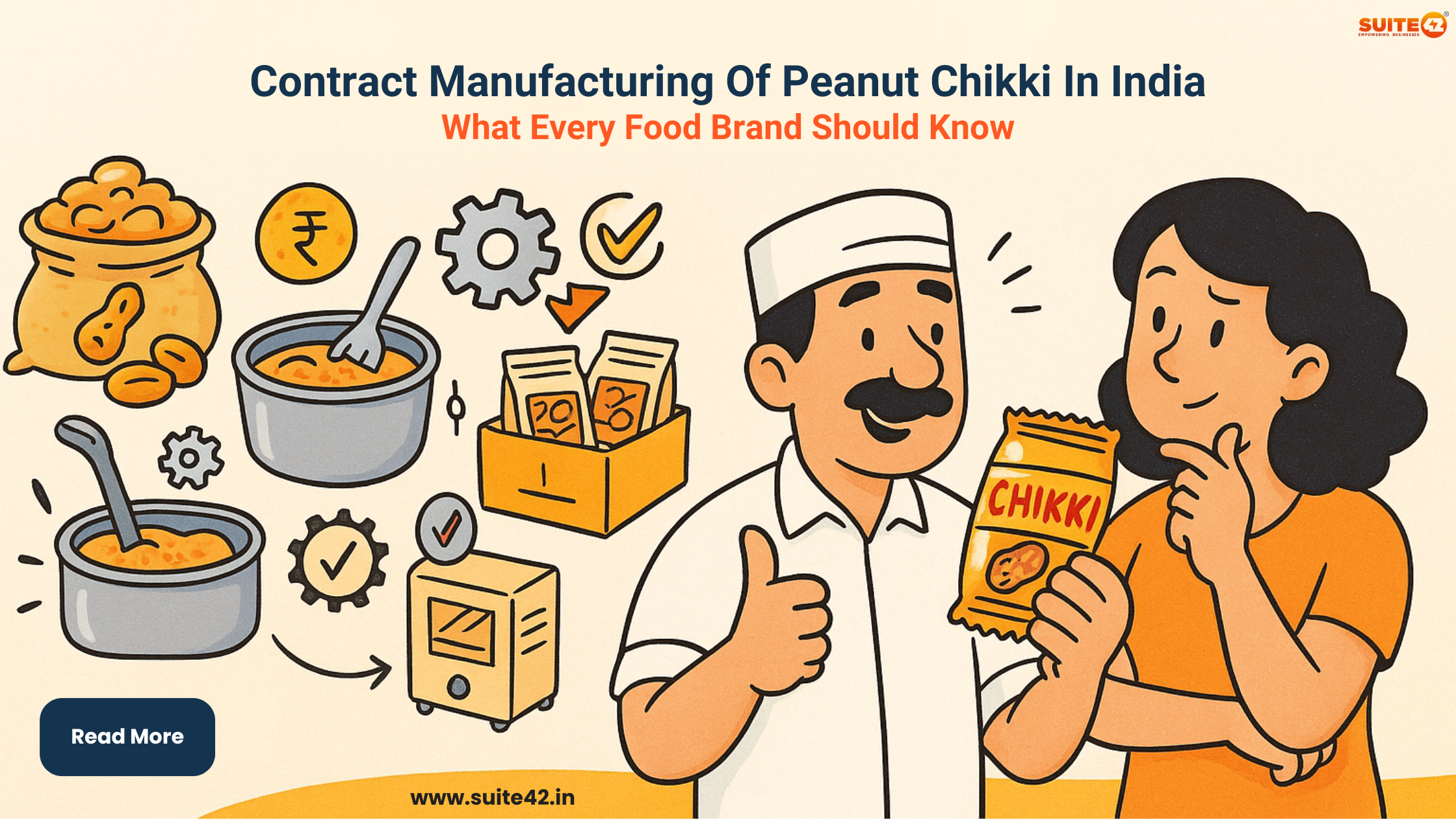
Navigating the US Supply Chain for Food & Beverage Contract Manufacturing
The US food and beverage industry, a cornerstone of the nation’s economy, pulsates with innovation. However, its lifeblood lies in a complex and ever-evolving supply chain – a multifaceted network that orchestrates the seamless flow of ingredients from farm to table. Contract manufacturing has emerged as a compelling strategy for brands seeking scalability and cost-efficiency, allowing them to focus on core competencies like product development and marketing. Yet, navigating the US supply chain for food and beverage contract manufacturing presents a unique set of challenges and opportunities. This comprehensive guide delves into these intricacies, empowering US food and beverage brands to make informed decisions and establish successful partnerships that unlock efficiency and growth.
Understanding the US Food Supply Chain Landscape
A Multifaceted Network: The US food supply chain is a symphony of interconnected stakeholders, each playing a vital role in bringing food to consumers. From agricultural producers who cultivate the raw materials to processors who transform them into consumable goods, the chain extends to distributors who ensure product availability and retailers who serve as the final point of purchase. Consumers, the ultimate beneficiaries, complete this intricate web. Disruptions at any level within this interconnected system can have cascading effects, highlighting the importance of robust communication and collaboration throughout the supply chain.
Regulatory Framework: The US Food and Drug Administration (FDA) acts as the conductor of this symphony, ensuring food safety through a comprehensive set of regulations. These regulations, including HACCP (Hazard Analysis and Critical Control Points), establish mandatory protocols for identifying and controlling potential hazards throughout the food production process. Contract manufacturers must adhere to these regulations to ensure the safety and integrity of the food products they produce for their brand partners.

Food and Beverage Supply Chain Challenges in the USA
Seasonality and Demand Fluctuations: The US food and beverage supply chain is not without its challenges. Seasonality presents a significant hurdle, with agricultural products experiencing fluctuations in availability and pricing based on harvest cycles. Food and beverage brands entering into contract manufacturing partnerships must devise strategies to mitigate these risks and ensure a consistent supply of high-quality ingredients.
Maintaining quality and safety throughout the contract manufacturing process is paramount. Rigorous quality control procedures are essential to safeguard brand reputation and consumer trust. Compromised food safety can lead to product recalls, lawsuits, and irreparable damage to a brand’s image.
Article that might interest you: Top Challenges US Food & Beverage Brands Face While Considering Contract Manufacturing
Optimizing the US Food Manufacturing Supply Chain
Leveraging Technology: Technology offers a multitude of tools to optimize the US food manufacturing supply chain. Blockchain technology, for instance, can enhance transparency and traceability, allowing brands to track ingredients from source to finished product. Additionally, data analytics can provide valuable insights into consumer demand patterns, enabling more accurate forecasting and inventory management, thereby minimizing waste and optimizing production efficiency.
Building Strategic Partnerships: This is the cornerstone of a successful US food and beverage contract manufacturing operation. Selecting a reliable contract manufacturer with a proven track record in food safety, quality control, and supply chain management is crucial. Partnering with a manufacturer who possesses a deep understanding of US food safety regulations and possesses the expertise to navigate the complexities of the supply chain fosters a collaborative environment that propels brand growth.
Best Practices for US Food Manufacturing Supply Chain Management
Raw material sourcing is the foundation upon which a successful food and beverage contract manufacturing operation is built. Establishing clear quality specifications and conducting thorough inspections of incoming ingredients are essential practices. Here, Suite42 emerges as a trusted partner.
Suite42: Your Reliable Raw Material Procurement Partner
Suite42’s expertise in supply chain management ensures consistent and high-quality raw material procurement for US food and beverage brands. Our extensive supplier network across the USA and the globe provides access to a diverse range of ingredients, while our rigorous quality control procedures guarantee product integrity. Suite42 fosters transparent communication and collaboration with our clients, keeping them informed throughout the sourcing process. This level of commitment empowers brands to focus on innovation and brand building, confident that their contract manufacturing partner is meticulously managing the supply chain.

Inventory management and forecasting play a vital role in optimizing the US food manufacturing supply chain. Accurate demand forecasting allows for the procurement of appropriate quantities of raw materials, minimizing the risk of stockouts and overstocking. Efficient inventory management reduces waste and ensures product availability to meet consumer demand.
Risk management and mitigation strategies are crucial for navigating the inherent uncertainties of the food and beverage supply chain. Identifying potential disruptions, such as weather events, transportation delays, and raw material shortages, allows for the development of contingency plans to minimize their impact. Diversifying suppliers and transportation routes can further enhance supply chain resilience.
Managing Supply Chain Disruptions in the USA
Building a resilient supply chain is vital for weathering unforeseen challenges. Diversifying supplier bases and transportation routes mitigates the impact of disruptions at any single point within the network. Open communication and collaboration with all partners throughout the supply chain are essential during disruptions. By working together, stakeholders can identify solutions and implement contingency plans to minimize delays and ensure product availability.
The Future of US Food & Beverage Contract Manufacturing Supply Chains
Sustainability Considerations: The future of US food and beverage contract manufacturing supply chains is inextricably linked to sustainability. Consumers are increasingly demanding transparency and eco-conscious practices throughout the food production process. Sustainable sourcing practices, such as partnering with local farmers who employ environmentally responsible agricultural techniques, are becoming a priority for many brands. Additionally, environmentally conscious logistics solutions that minimize the carbon footprint of the supply chain are gaining traction.

Technological advancements: This also holds immense potential for revolutionizing the US food and beverage supply chain. Artificial intelligence (AI) can be harnessed to optimize production processes, streamline inventory management, and predict potential disruptions. Automation can further enhance efficiency by reducing manual labor and minimizing human error. By embracing these advancements, contract manufacturers can create a more agile and responsive supply chain that caters to the evolving needs of the market.
Conclusion: Partnering for Success in the US Food & Beverage Contract Manufacturing Landscape
Navigating the US supply chain for food and beverage contract manufacturing requires a strategic approach. By understanding the intricacies of the system, adhering to US food safety regulations, and implementing best practices, brands can unlock the full potential of this strategy. Selecting a reliable contract manufacturing partner with expertise in supply chain management, quality control, and food safety is paramount for success. Suite42, with its extensive supplier network, rigorous quality control procedures, and commitment to transparent communication, stands out as a valuable resource for US food and beverage brands seeking a partner to ensure consistent and high-quality raw material procurement. By fostering a collaborative partnership built on mutual trust and a shared vision for growth, US food and beverage brands can leverage contract manufacturing to achieve their goals and thrive in the dynamic marketplace.






Leave a Reply